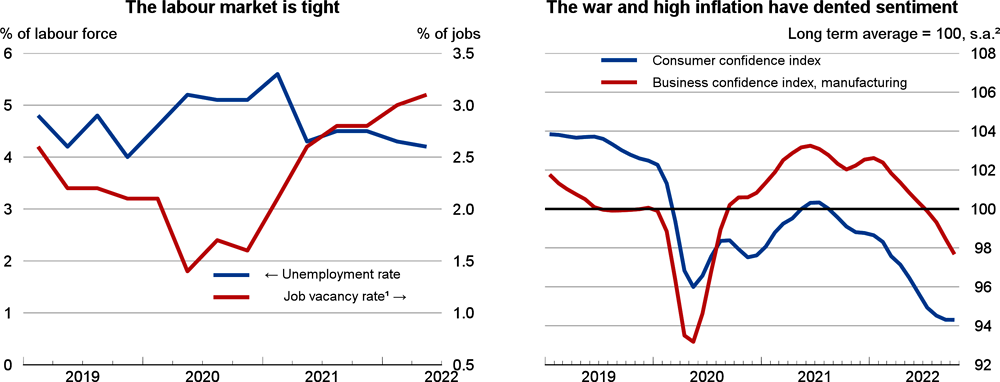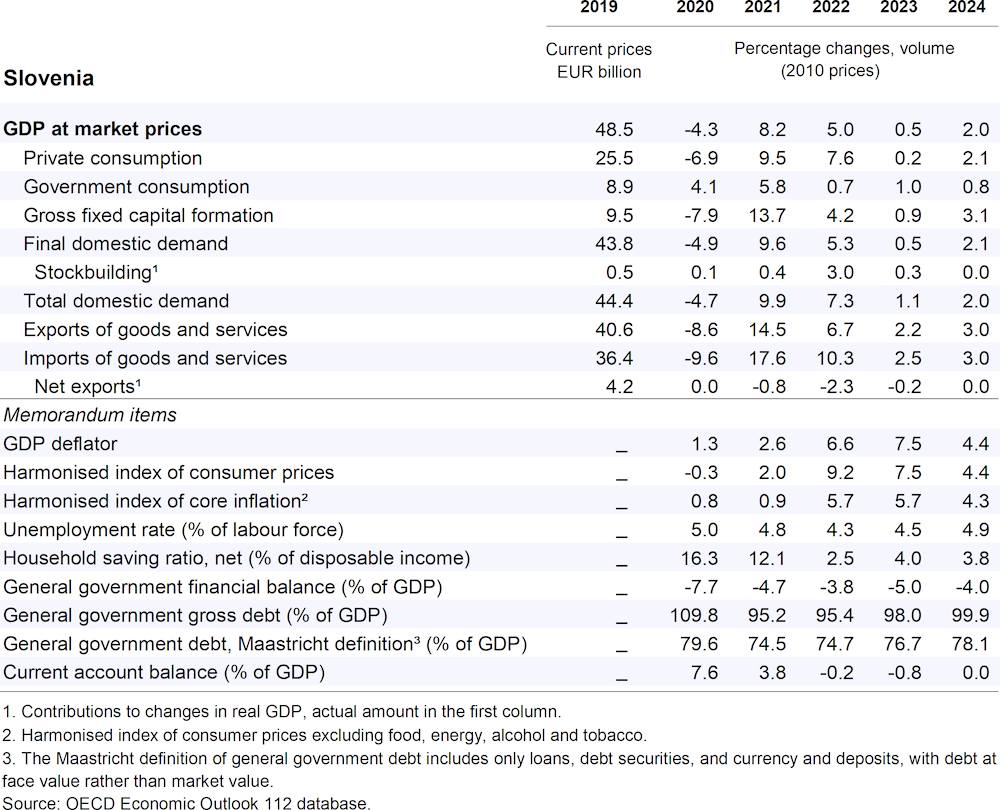GDP growth is projected to slow from 5% in 2022 to 0.5% in 2023, reflecting higher inflation, weaker external demand and the negative impact on confidence from Russia’s war of aggression against Ukraine. Despite slowing activity, the labour market is expected to remain tight, fuelling stronger wage growth and contributing to inflationary pressures. Nonetheless, real wages will fall, damping private consumption. Growth will pick up to 2% in 2024 as inflation slowly recedes.
Fiscal policy will remain supportive in 2023, before tightening in 2024. Government measures aim to mitigate the effects of increasing energy prices on households. Fiscal support should be targeted on low-income households, preserve energy saving incentives and be financed by spending cuts, as the current expansionary fiscal stance risks intensifying inflationary pressures. Structural reforms to address labour shortages and raise potential growth should focus on reducing labour taxes, financed by higher environmental and property taxes.

